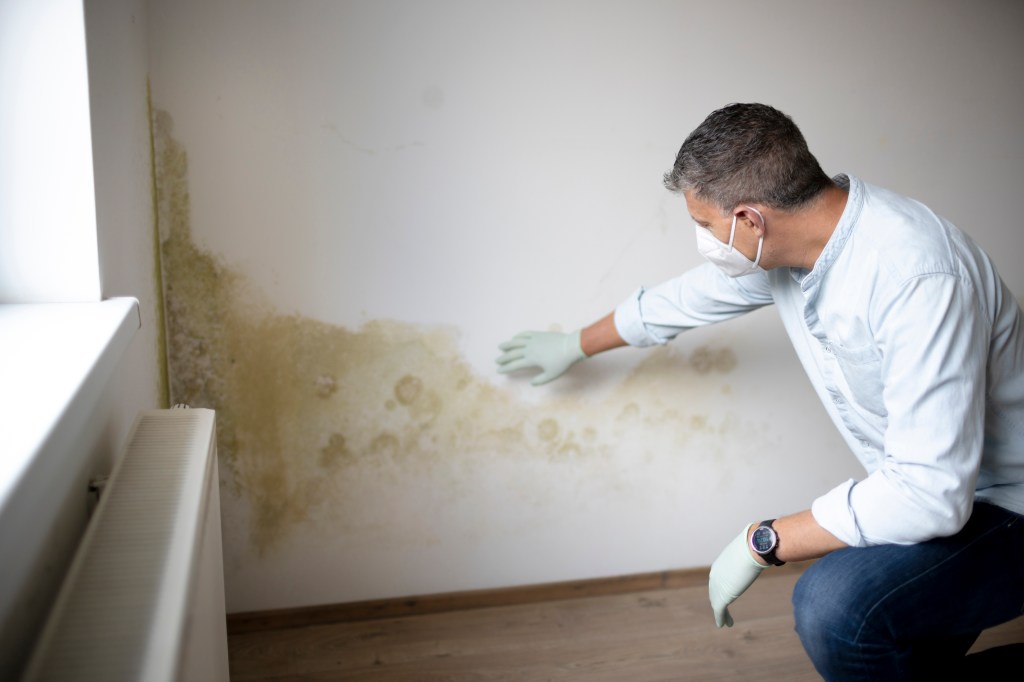How toxic is mold in our homes? Tori Spelling sparks health concerns
Actress Tori Spelling has had a tumultuous year.
In addition to breaking up with husband Dean McDermott and living in an RV, the former “Beverly Hills, 90210” actress revealed she was hospitalized last week and was seen leaving a medical facility last Sunday covered in bruises.
Spelling did not disclose what her ailment is but has spoken about how several of her five children have cycled in and out of the hospital since January.
The reason, Spelling later said, was an ongoing mold problem in their house.
“Let’s talk about MOLD,” Spelling wrote in an Instagram post in May. “Here we are again at Urgent Care. We’ve all been on this continual spiral of sickness for months. Sick. Get better. To get sick again.
“Used to think … well that’s what happens when you have young kids in school. They just continually bring sicknesses home. We now know that when the house was labeled a health hazard and not live able [sic] that wording was FACT. We now GET IT,” Spelling added.
“Our troubles are next level with our mold problem and the house that’s been slowly killing us for 3 years,” she said.
Mold can be a serious health problem and one that’s tricky to solve because mold — and mold spores, which spread mold through the air — are found everywhere.
What is mold?
Mold is a type of fungus found outdoors and inside buildings, ships, passenger vehicles — anywhere that moisture is present.
“Mold spores are always found in the air we breathe,” according to the New York State Department of Health, “but extensive mold contamination may cause health problems.”
Molds can grow on virtually any surface, including wood, carpet, paper and food, according to the EPA.
Types of mold
The three molds most commonly found indoors include Cladosporium, which may be brown, green or black. It’s most often found on wood, carpets or fabrics, and inside heating and cooling ducts, according to Healthline.
Penicillium — the source of the antibiotic penicillin — is a fuzzy mold that can be blue, green or yellow. It’s typically found in places where there’s been water damage.
Aspergillus is a powdery mold that’s green, white or gray. It lives on fabrics and walls, and in attics and basements, as well as on foods.
Mold symptoms
Exposure to mold or mold spores can cause minor symptoms, including sneezing, a runny or stuffy nose, coughing, itchy or watery eyes and dry, scaly skin, according to the Mayo Clinic.
But people who have asthma, a mold allergy, emphysema or a compromised immune system can have more severe symptoms, such as wheezing, shortness of breath and chest tightness.

Mold removal
Despite these risks, there are few regulations that specifically address mold in buildings: “Mold testing is not recommended, nor is it required by any regulatory agency,” according to the website for the New York Department of Health.
“There is no state or federal standard for mold in homes. Mold sampling and testing can be more expensive than simply cleaning and repairing the water problems that allow mold to grow.”
And when it comes to mold inspections or mold removal, they usually aren’t needed: “In most cases hiring a licensed mold assessment contractor is not necessary. Most people can identify and clean mold growth themselves,” the website states.
Hard surfaces with mold that are not decayed or rotten can be cleaned with soap and water. In places where it’s not practical to eliminate moisture, diluted chlorine bleach can keep mold growth under control.
A licensed contractor might be needed if mold is affecting a large area, or if you are highly sensitive to mold.
Though Spelling’s hospitalization may have been related to the mold mentioned in her earlier social media posts, there has been no confirmation of what prompted the hospital stay.
In photos and a video obtained Monday by Page Six, Spelling could be seen with bruising on her face and arms as she was escorted to a black SUV via a wheelchair, appearing unsteady and needing assistance.
Read the full article Here


